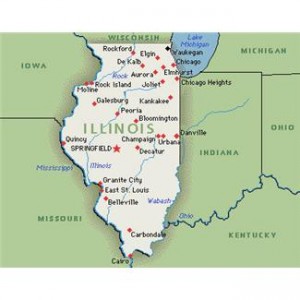Equitable estoppel argument fails to save time-barred legal malpractice claim
by Christopher Graham and Joseph Kelly
Faysal Mohamed, formed Area Wide 79th & Western LLC to develop a parcel of land in the City of Chicago for commercial development – namely, a Walgreens store and a TCF Bank. The development plan required Walgreens and TCF to grant each other cross-easements for parking, ingress and egress.
Area Wide retained attorney Francis Keldermans and his firm, Holland & Knight, LLP to handle the development. Keldermans allegedly failed to include a provision in a lease between Area Wide and Walgreens requiring Walgreens to grant the necessary easements to TCF and the lease was signed by the time the mistake was discovered. Walgreens balked at Keldermans’ and Mohamed’s subsequent requests that it grant the easements anyways.
On May 9, 2008, TCF backed out of a sales agreement with Area Wide when it learned about the easements wouldn’t be granted. Area Wide had mortgaged the entire property and by 2010 the bank foreclosed.
On April 10, 2012, Area Wide and Mohamed sued Keldermans and Holland & Knight for legal malpractice for failure to include the easement grants in the Walgreens lease. Keldermans and the firm successfully moved to dismiss based on Illinois’ two-year statute of limitations for legal malpractice. Area Wide and Mohamed appealed.
On appeal, Area Wide and Mohamed conceded that their cause of action accrued in 2008 and they didn’t argue the statute of limitations should have been tolled by the discovery rule.
Instead, Area Wide and Mohamed argue that the statute of limitations shouldn’t apply because of equitable estoppel.
Under Illinois law:
-
“A party whose conduct has caused another to delay filing suit until after the limitations period has run may be estopped from asserting the statute of limitations as a bar to the action. To prevail on this theory, the party asserting estoppel must establish that [it] reasonably relied upon the other party’s conduct or representations in forebearing suit.”; and
-
A plaintiff must show “(1) defendant has made some misrepresentation or concealment of a material fact; (2) defendant had knowledge, either actual or implied, that the representations were untrue at the time they were made; (3) plaintiff was unaware of the untruth of the representations both at the time they were made and the time they were acted upon; (4) defendant either intended or expected his representations or conduct to be acted upon; (5) plaintiff did in fact rely upon or act upon the representations or conduct; and (6) plaintiff has acted on the basis of representations or conduct such that he would be prejudiced if defendant is not estopped.”
Here, Area Wide and Mohamed also argued that Keldermans and the firm assured them they could successfully negotiate with Walgreens and that they were lulled into a false sense of security by such assurances. The 1st District rejected this argument as well because Area Wide and Mohamed knew of the lease mistake at the time of such assurances. The court stated “[e]stoppel cannot apply in this situation because plaintiffs were fully aware of their injury within the statute of limitations period…” The court further noted that “[i]n order for estoppel to apply, defendants must have known that their representation were untrue. [citation omitted]. Yet there is no indication anywhere in the complaint or affidavits that defendants were negotiating with Walgreens in bad faith merely as a delaying tactic, or that they knew all along that it would be impossible to obtain the [easements].”
Area Wide and Mohamed also argued Keldermans and the firm breached a fiduciary duty owed to them by failing to alert them that they had a cause of action against TCF. The 1st District rejected this argument because: (1) there was no supporting case law cited; and (2) plaintiffs appeared to equate equitable estoppel with fraudulent concealment, but didn’t plead fraudulent concealment.
The 1st District, thus, held that equitable estoppel did not bar Keldermans and the firm from asserting the statute of limitations as a successful defense.
Tags: Illinois, legal malpractice, statute of limitations, equitable estoppel
Category: Lawyers Malpractice Digest Comment »

